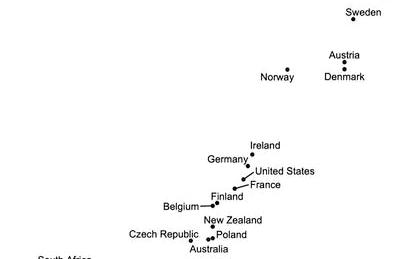

Our Courses

Causal Diagrams: Draw Your Assumptions Before Your Conclusions
Learn simple graphical rules that allow you to use intuitive pictures to improve study design and data analysis for causal inference.
-
Course by

-
 Self Paced
Self Paced
-
 9
9
-
 English
English

Essential Causal Inference Techniques for Data Science
Data scientists often get asked questions related to causality: (1) did recent PR coverage drive sign-ups, (2) does customer support increase sales, or (3) did improving the recommendation model drive revenue?
-
Course by

-
 Self Paced
Self Paced
-
 3 hours
3 hours
-
 English
English

Causal Inference 2
This course offers a rigorous mathematical survey of advanced topics in causal inference at the Master’s level. Inferences about causation are of great importance in science, medicine, policy, and business. This course provides an introduction to the statistical literature on causal inference that has emerged in the last 35-40 years and that has revolutionized the way in which statisticians and applied researchers in many disciplines use data to make inferences about causal relationships.
-
Course by

-
 Self Paced
Self Paced
-
 English
English

Quantifying Relationships with Regression Models
This course will introduce you to the linear regression model, which is a powerful tool that researchers can use to measure the relationship between multiple variables. We’ll begin by exploring the components of a bivariate regression model, which estimates the relationship between an independent and dependent variable. Building on this foundation, we’ll then discuss how to create and interpret a multivariate model, binary dependent variable model and interactive model.
-
Course by

-
 Self Paced
Self Paced
-
 12 hours
12 hours
-
 English
English

Causal Inference
This course offers a rigorous mathematical survey of causal inference at the Master’s level. Inferences about causation are of great importance in science, medicine, policy, and business. This course provides an introduction to the statistical literature on causal inference that has emerged in the last 35-40 years and that has revolutionized the way in which statisticians and applied researchers in many disciplines use data to make inferences about causal relationships. We will study methods for collecting data to estimate causal relationships.
-
Course by

-
 Self Paced
Self Paced
-
 13 hours
13 hours
-
 English
English

A Crash Course in Causality: Inferring Causal Effects from Observational Data
We have all heard the phrase “correlation does not equal causation.” What, then, does equal causation? This course aims to answer that question and more! Over a period of 5 weeks, you will learn how causal effects are defined, what assumptions about your data and models are necessary, and how to implement and interpret some popular statistical methods. Learners will have the opportunity to apply these methods to example data in R (free statistical software environment). At the end of the course, learners should be able to: 1. Define causal effects using potential outcomes 2.
-
Course by

-
 Self Paced
Self Paced
-
 18 hours
18 hours
-
 English
English

Data Science in Real Life
Have you ever had the perfect data science experience? The data pull went perfectly. There were no merging errors or missing data. Hypotheses were clearly defined prior to analyses. Randomization was performed for the treatment of interest. The analytic plan was outlined prior to analysis and followed exactly. The conclusions were clear and actionable decisions were obvious. Has that every happened to you? Of course not. Data analysis in real life is messy. How does one manage a team facing real data analyses? In this one-week course, we contrast the ideal with what happens in real life.
-
Course by

-
 Self Paced
Self Paced
-
 7 hours
7 hours
-
 English
English



